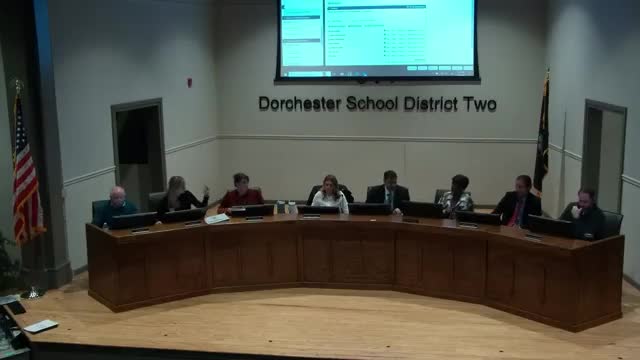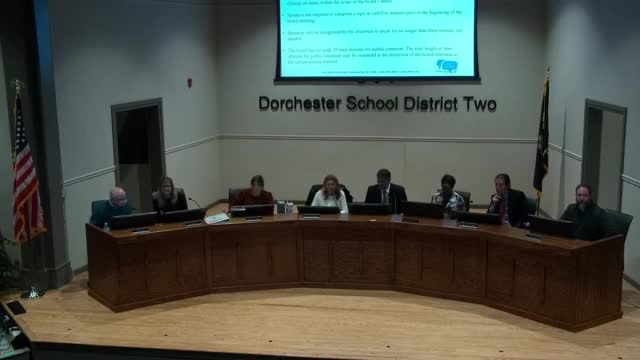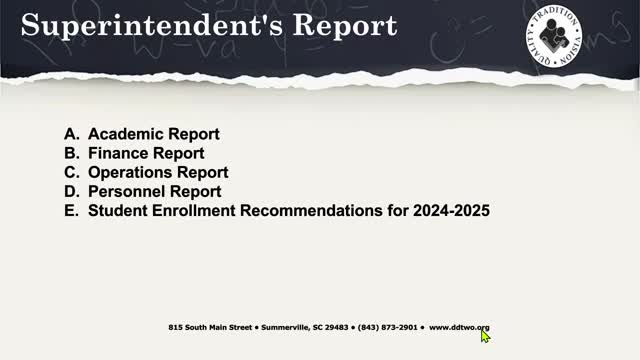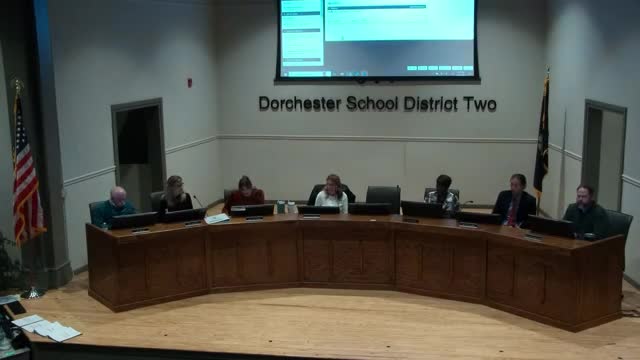Article not found
This article is no longer available. But don't worry—we've gathered other articles that discuss the same topic.

Board accepts minority enterprise spending report for July–Dec 2024; six-month total $1.9M

Summerville High student asks Dorchester 2 board to adopt student-media policy, citing Hazelwood precedent

Dorchester School District 2 board approves K–12 math textbook adoptions after district review

